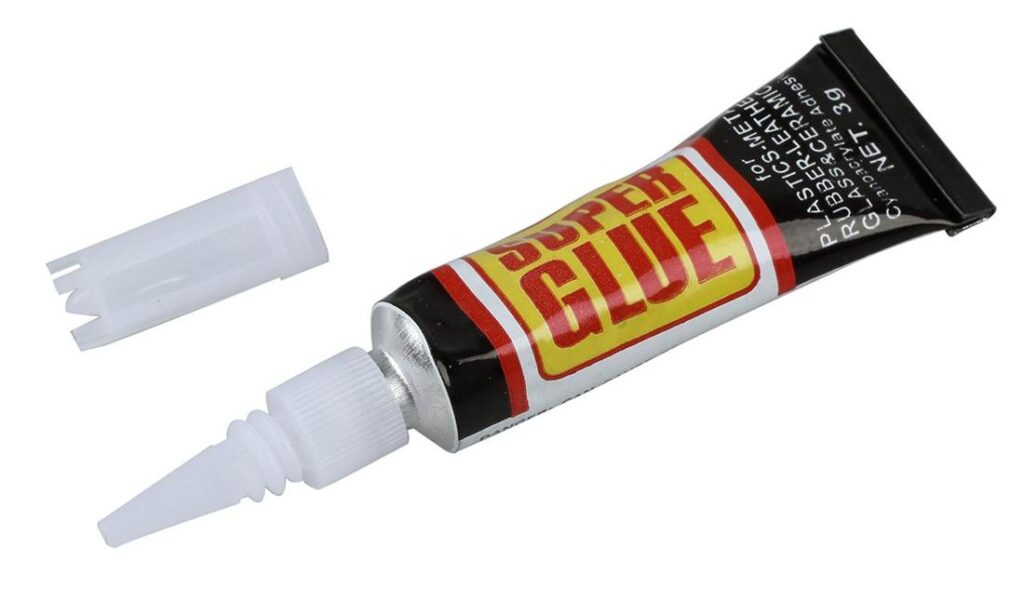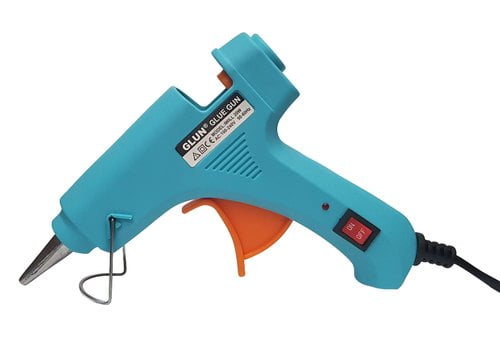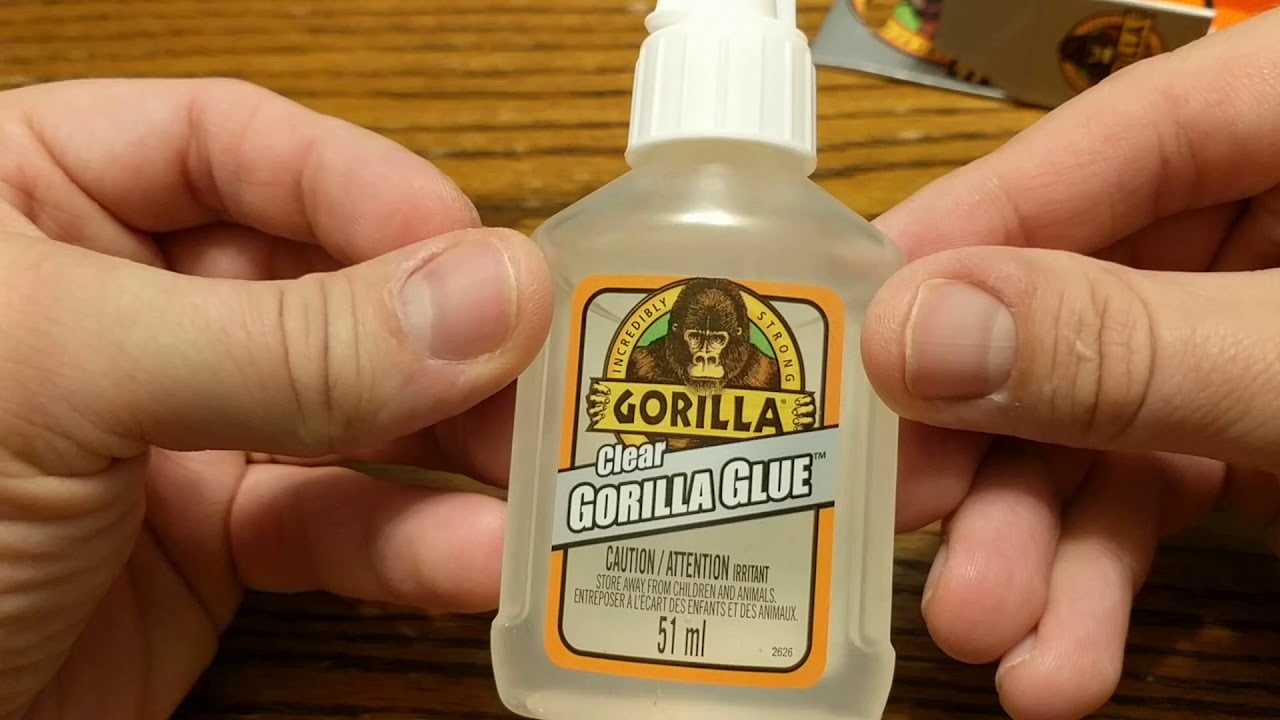
Super glue, also known as cyanoacrylate adhesive, is a fast-acting adhesive that forms an incredibly strong bond between materials. It is widely used in various industries and for everyday purposes due to its exceptional bonding properties and quick drying time.
When the glue is exposed to moisture in the air, a chemical reaction occurs, causing the molecules to polymerize and form a strong bond. This reaction happens quickly, resulting in an instant bond between the materials being glued together.
However, while its uses are well-known, others constantly ask if super glue is waterproof. In this article, we will delve deeper into the properties of super glue if it’s really water-resistant.
Difference Between Waterproof and Water-Resistant
Waterproof materials are designed to prevent water entry, making them suitable for applications such as swimming gear, rain jackets, or waterproof electronics. On the other hand, water-resistant materials have some level of water protection but may not be completely impervious to water. They can resist water to a certain extent but may not provide long-term protection if subjected to prolonged exposure or immersion.
Is Super Glue Waterproof Or Water-Resistant?

Super glue, including popular variants like Loctite Super Glue or Gorilla Glue, is often touted as water-resistant but not actually waterproof. The distinction lies in its ability to withstand short-term exposure to water without significant loss of adhesive properties. When applied, the liquid super glue rapidly cures to form a strong bond, creating a thin layer of adhesive. This property allows it to endure occasional contact with water without immediate failure.
In short, super glue is very strong and can be considered water resistant to some degree. It can withstand occasional exposure to water without losing its bonding capabilities. However, it is essential to note that prolonged or constant immersion in water can gradually deteriorate the bond. Over time, the presence of moisture may weaken the adhesive, causing it to lose its effectiveness. For this reason, super glue is not the ideal choice for applications requiring long-term exposure to water or continuous moisture.
Does Super Glue Lose its Adhesive Properties When Wet?
While super glue is water-resistant, it can lose its adhesive properties when constantly exposed to water or immersed in moisture for extended periods. The moisture may weaken the bond over time, leading to a potential loss of adhesion strength.
Proper surface preparation, ensuring a clean and dry bonding surface, can help optimize the water resistance of superglue and maintain its effectiveness in various applications. However, it is crucial to consider other specialized waterproof adhesives for scenarios involving continuous contact with water or high-humidity environments.
How Can Super Glue Withstand Water and Moisture?
The water-resistant nature of superglue is primarily attributed to its rapid curing process and unique chemical composition. When the liquid superglue comes into contact with air, it undergoes a quick polymerization reaction, forming a solid bond. This speedy curing allows the glue to set rapidly and create an initial level of water resistance.
The adhesive strength of super glue is further enhanced by its ability to penetrate the porous surface of materials. This penetration creates a mechanical bond between the adhesive and the substrate, contributing to its overall resilience against water and moisture.
However, if super glue is submerged in water for an extended period, the water can weaken the bond between materials. The adhesive properties of super glue will lose since it relies on the reaction with moisture. Thus, continuous exposure to water can compromise its bonding capabilities. It is best to avoid submerging super glue bonds in water to ensure their longevity.
Best Waterproof Super Glue
The best water-resistant super glue products depend on the application and materials involved. Here are some reputable options to consider:
1. Gorilla Super Glue Gel: Gorilla Glue is widely recognized for its exceptional adhesives, and its Super Glue Gel is no exception. This product is formulated to bond quickly and exhibits excellent resistance to water and moisture, making it a reliable choice for various applications.
2. Loctite Superglue (Ultra Gel Control): Loctite is a well-established brand known for its high-quality adhesives. The Ultra Gel Control Super Glue, featuring a gel-based formulation, offers outstanding water resistance and versatility in bonding different materials.
3. E6000 Craft Adhesive: While not specifically marketed as super glue, E6000 Craft Adhesive is highly regarded for its versatility and waterproof properties. It is widely used in various crafts and DIY projects, showcasing reliable performance on diverse materials.
4. Permabond 910 Cyanoacrylate Super Glue: Permabond has a reputation for producing industrial-grade adhesives. The 910 Cyanoacrylate Super Glue is a high-performance product with excellent water resistance and rapid curing capabilities.
5. Starbond EM-2000 Thick CA Glue: Starbond is recognized for its quality cyanoacrylate (CA) glues. The EM-2000 Thick CA Glue is designed to withstand water exposure, making it suitable for indoor and outdoor applications.
6. Bob Smith Industries Maxi-Cure Extra Thick CA: Bob Smith Industries offers a range of super glues for various purposes. The Maxi-Cure Extra Thick CA has enhanced water resistance and excellent gap-filling properties.
When selecting a waterproof super glue, it is advisable to consider the specific materials to be bonded, the intended application, and the environmental conditions, such as indoor or outdoor use and exposure to temperature variations. Adherence to the manufacturer’s guidelines for proper usage is essential to achieve optimal results.
Before full application, testing the adhesive on a small, inconspicuous area is recommended to ensure compatibility and desired performance. Additionally, staying updated on any new product offerings or advancements in adhesive technology is important.
Applications of Waterproof Super Glue

Although super glue is not inherently waterproof, certain applications can be effectively used in water-resistant or waterproofing scenarios.
Using Super Glue for Outdoor Repairs
Super glue can be used for outdoor repairs requiring some water resistance. It can fix outdoor equipment, repair cracks in plastic or metal objects, and secure loose components. However, it is important to note that constant exposure to extreme weather conditions might eventually weaken the bond.
Waterproofing Electronic Components with Super Glue
In electronics, superglue can provide some level of water resistance to components. It can be applied to seals and connectors to prevent water intrusion. However, it is crucial to ensure that the glue does not interfere with the electrical conductivity of the components.
Waterproofing Seams and Joints with Super Glue
Super glue can also waterproof seams and joints in certain applications. It can help create a water-resistant barrier between materials, reducing the risk of water infiltration. However, applying the glue correctly and ensuring it adheres well to the bonded surfaces is essential.
Waterproofing Outdoor Gear and Equipment
Super glue can serve as a temporary solution for waterproofing outdoor gear and equipment, such as tents, tarps, and backpacks. Applying a thin layer of waterproof super glue to small tears or holes can help prevent water from seeping through and prolong the life of the gear until more permanent repairs can be made.
Marine and Boating Applications
In marine environments, where constant exposure to water is inevitable, waterproof super glue can be used for minor repairs on boats and watercraft. It can help seal small cracks or leaks in plastic, metal, or fiberglass parts, providing a temporary fix until proper maintenance.
Waterproofing Woodworking Projects
For woodworking projects exposed to occasional moisture or humidity, waterproof super glue can be utilized to strengthen joints and create a water-resistant bond between wood pieces. It is particularly useful for small repairs or touch-ups in outdoor wooden structures, such as garden furniture or fences.
Waterproofing Jewelry and Accessories
Super glue can waterproof jewelry and accessories made of porous or delicate materials, such as leather, fabric, or beads. Applying a thin layer of waterproof super glue can make these items more resistant to water damage and wear.
Fixing Leaking Plumbing Components
In emergencies, waterproof super glue can temporarily fix minor plumbing leaks, such as in pipes or fittings. However, it is essential to remember that this is not a long-term solution, and professional plumbing repairs should be done as soon as possible.
Creating Waterproof Seals in DIY Projects
DIY enthusiasts can use waterproof super glue to create water-resistant seals in various projects, such as outdoor decorations or planters. It can help protect the structure from water damage and extend its longevity.
Repairing Rubber and Neoprene Products
Waterproof super glue effectively repairs rubber and neoprene products, such as wetsuits, rubber boots, or inflatable toys. It can mend small tears or holes, providing a temporary solution for water resistance until proper repairs can be made.
While waterproof super glue can be advantageous in certain situations, it is essential to recognize its limitations. It is not a substitute for specialized waterproof adhesives designed for continuous exposure to water or underwater applications. For critical waterproofing needs, adhesive products explicitly formulated for such purposes are recommended.
How to Use Super Glue Effectively
Following certain guidelines to achieve the best results and ensure a strong bond is essential when using super glue. Here are some tips for applying Super Glue correctly:
1. Prepare the Surfaces: Ensure that the surfaces to be bonded are clean, dry, and free from dirt, oil, or debris. Use a mild solvent or rubbing alcohol to clean the surfaces if necessary. Roughening smooth surfaces with sandpaper can improve adhesion.
2. Apply a Thin Layer: Super glue works best in a thin layer. Squeeze a small amount of glue onto one of the surfaces. A little goes a long way, so avoid over-applying the adhesive.
3. Press and Hold: Immediately press the two surfaces together firmly. Hold them for a few seconds to allow the glue to bond. Avoid moving or repositioning the materials once they are in contact.
4. Use Clamps (Optional): Consider using clamps to maintain constant pressure during bonding for larger or heavier objects. Clamps can ensure a more secure and even bond.
5. Allow Adequate Drying Time: Super glue sets quickly, but complete curing may take a bit longer. Follow the manufacturer’s instructions for drying time. Avoid excessive handling of the bonded item until the glue has fully cured.
6. Store Properly: To maintain the effectiveness of the super glue, store it in a cool, dry place, and ensure the cap is tightly sealed after each use.
7. Use with Caution: Super glue can bond skin and other unintended objects. Be cautious and use gloves or protective barriers when handling the adhesive.
8. Avoid Contact with Eyes and Mouth: Super glue can irritate if it comes into contact with the eyes or mouth. In case of accidental contact, seek medical attention immediately.
9. Work in a Well-Ventilated Area: Use super glue in a well-ventilated area to avoid inhaling fumes.
10. Consider Specialized Variants: For specific applications, consider using specialized super glue variants, such as waterproof super glue for water-resistant bonding or high-temperature super glue for applications exposed to heat.
Following these steps and taking necessary precautions, you can effectively use super glue for various bonding tasks, from household repairs to intricate DIY projects. Always read and adhere to the manufacturer’s instructions to achieve the best results and ensure safety during application.
Additional Tip: How to Remove Super Glue From Surfaces?
If you need to remove super glue from surfaces, it can be a bit challenging, especially if it has fully dried. However, there are several methods you can try:
Using Nail Polish Remover to Remove Super Glue
Nail polish remover, which contains acetone, can help dissolve super glue. Apply a small amount of the nail polish remover to a clean cloth and gently rub the glued area. The acetone will break down the glue, allowing you to peel it off or wipe it away.
Overall, super glue is a versatile and powerful adhesive that can be used for various applications. While it may not be completely waterproof, it can provide water resistance in certain situations. By understanding its limitations and using it appropriately, super glue can be an effective bonding solution in many situations.
Frequently Asked Questions
Q: Is Super Glue waterproof?
A: Super glue is water-resistant, but it is not considered waterproof. While it can resist some exposure to water, it is not suitable for constant or prolonged contact with moisture.
Q: What are the properties of Super Glue?
A: Super glue, also known as cyanoacrylate adhesive, is a fast-acting adhesive that creates a strong bond between materials. It dries quickly when exposed to air and forms a tough and durable bond.
Q: Is Super Glue resistant to water?
A: Yes, Super glue is resistant to water to some extent. It can withstand brief exposure to water and moisture but is not completely waterproof.
Q: Can I use Super Glue on plastic?
A: Yes, you can use Super glue on plastic materials. It is commonly used for bonding various types of plastics together.
Q: What are some popular brands of Water Resistant Super Glue?
A: Some popular brands of Super glue include Gorilla Super Glue, Loctite Super Glue, and Krazy Glue.
Q: Can I remove Loctite Super Glue?
A: Yes, you can remove Loctite Super glue. Acetone or nail polish remover can be used to dissolve the bond and help in removing the adhesive.
Q: Is Super Glue waterproof once it dries?
A: No, Super glue is not waterproof once it dries. While it is water-resistant, it is not entirely impervious to water.
Q: How long does it take for Super Glue to dry?
A: Super glue typically dries within a few seconds to a minute, depending on the type and amount of glue used. It forms a quick bond when exposed to air.
Q: Can I use Super Glue in high heat?
A: It is not recommended to use Super glue in high-heat environments. High temperatures may cause the adhesive to lose its bonding properties.
Q: Is Super Glue dishwasher safe?
A: No, Super glue is not dishwasher safe. It is not designed to withstand prolonged exposure to water and detergents in a dishwasher.
Q: Can I use Super Glue to glue objects in constant contact with water?
A: It is not recommended to use Super Glue for objects constantly exposed to water. The waterproof matter of Super Glue is not designed to provide a long-lasting and strong bond in such conditions.
Q: What happens if Super Glue gets wet before it dries?
A: If Super Glue gets wet before dries, it may not bond properly. Water can interfere with the bonding process and weaken the adhesive strength.
Q: Can I remove Super Glue if I accidentally glue the wrong parts together?
A: There are ways to remove Super Glue if you need to separate glued objects. Soaking the bonded area in soapy water or using acetone can help dissolve the adhesive and make removing it easier.
Q: Is Gorilla Super Glue also waterproof?
A: Yes, Gorilla Super Glue is also water-resistant. It has similar properties to regular Super Glue and can withstand occasional contact with water.
Q: What is the difference between regular Super Glue and the ultra version?
A: The ultra version of Super Glue is an improved formulation offering even stronger adhesion and faster drying time than the original.
Q: Can I store Super Glue once it has been opened?
A: Yes, you can store Super Glue once it has been opened. Make sure to tightly close the cap and store it in a cool and dry place to maximize its shelf life.
Conclusion
In conclusion, super glue possesses water-resistant properties, but it’s not waterproof. When using the glue, it is essential to consider its limitations and suitability for specific applications. Super glue forms a strong bond quickly when exposed to air, and it is particularly effective in creating a robust bond between materials.
While it can withstand brief contact with water and moisture, super glue is not recommended for prolonged or constant exposure to water. It is not fully waterproof, and continuous immersion may gradually weaken the bond. In scenarios where water resistance is essential, using specialized waterproof glues or adhesives explicitly designed for such purposes is advisable.
For more valuable content like this, join our community at the Family Hint today!




